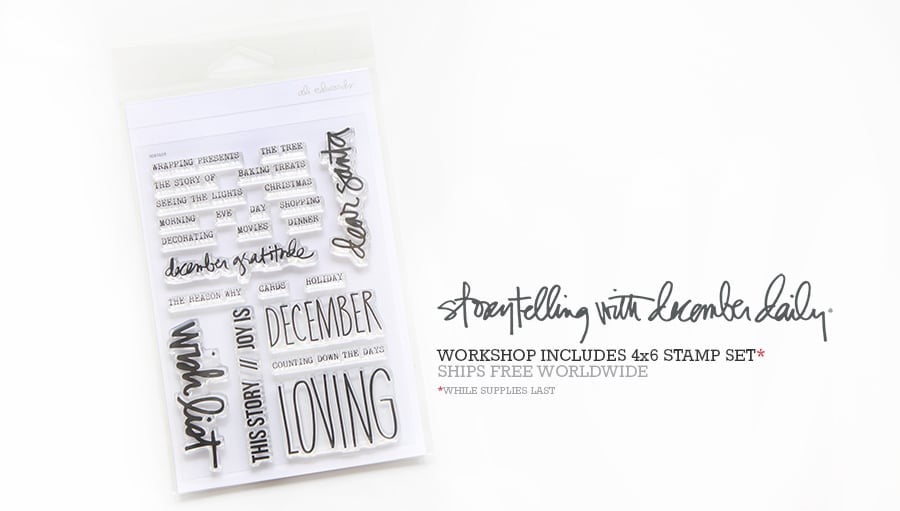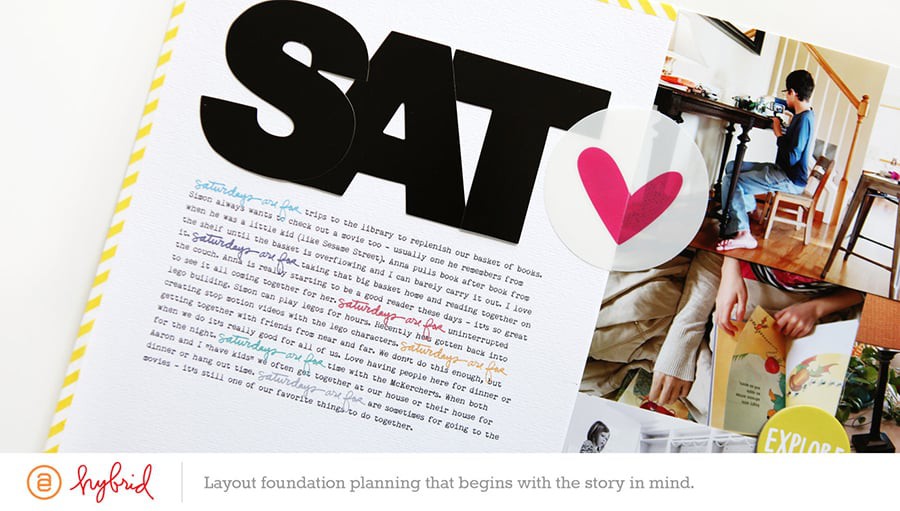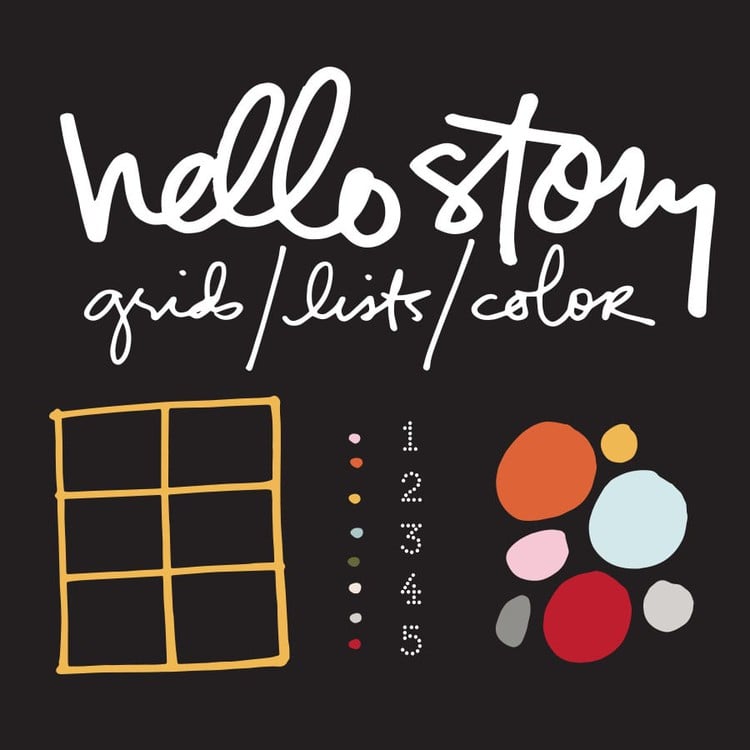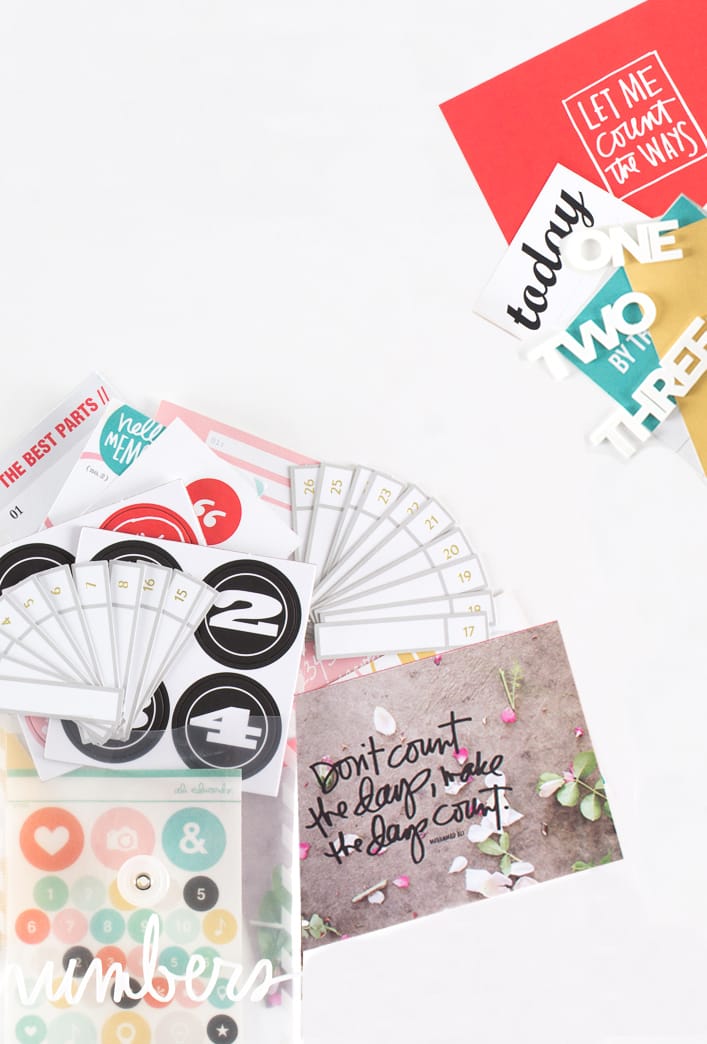The Family Resilience Handbook | A New Workshop With Jess Forster

I'm super excited to let you know about a brand new workshop here on my site called The Family Resilience Handbook.
Led by Creative Team Member Jess Forster the goal of this workshop is to take a deep dive into the stories of family resilience. Specifically you will be creating a 6x8 album of your family and it's members have bounced back from various life challenges to move forward. Through four focused lessons you'll reflect on and describe your own family's history, establish your families personal motto (this can be for any kind of family), and document family resilience through family interviews. Brandi Kincaid and I will be contributors to this workshop to show different definitions of family.
When Jess presented this concept to Katie and me we loved the idea so much. It's such a perfect, direct example of why storytelling matters and that scrapbooking can be a way of better understanding, accepting, embracing, and celebrating the stories of our lives.
So what does resilience mean anyway? According to the dictionary here on my computer it means "the capacity to recover quickly from difficulties; toughness."
This workshop includes a digital package that can be used to tell your stories. It will also go along really nice with the September Story Kit™ which is the theme of Family. Jess, Brandi and I will be using a mix of the Family Story Kit™ and the digital kit from the workshop as the base for our projects (my projects for this workshop will be different than the projects I'll share in the Story Kit™ classroom).
I asked Jess to answer a few questions about herself and this workshop so I could include a little Q&A with this post:
1. How did you come up with the concept for this class?
Family resilience has been a topic I have been interested in for a while, both personally and professionally. For more than 12 years, I have worked in a hospital as a medical social worker, with children and families diagnosed with Type 1 Diabetes. I have seen families been given a life changing diagnosis and in turn, thrive in the face of adversity. It is an honour and a privilege that on a daily basis, that I get to do this work. Little did I know that these experiences would help inform our family perspective, when my daughter was diagnosed with Autism Spectrum Disorder at the age of three, when I was eight weeks pregnant with my son. Now that we have emerged from that time period, my husband and I are keen to promote resilience in our own children. Inevitably, I wondered if I could do something creative, like use my scrapbooking skills to create a "liveable" album, a place to hold and celebrate our challenging stories and how we responded to these situations. Eh viola, The Family Resilience Handbook was born!
2. Tell me about your work life and how that impacts your memory keeping.
As I alluded to above, as a paediatric diabetes social worker, my work life has introduced me to many children and families from a variety of different backgrounds and experiences. On a daily basis I listen to stories of how people are actively trying to cope with their reality. Families share their most intimate thoughts and feelings about what it's like to live with a chronic illness or other mental health concerns that they may have. My work has definitely impacted the way I see the world and how I make sense of my own life. It has allowed me to reflect on the story I want to live and helps me find gratitude every day. This translates to how I make and keep my own memories. I often write about what I think and feel in my layouts and celebrate where myself and my family are at. In addition to helping me tell my story, memory keeping is also a really fun creative outlet that is a great stress relief and allows me to play.
3. What’s your best advice for people who want to include more challenging stories in their memory keeping?
Great question! All families face challenges but some families deal with especially difficult circumstances. For any number of reasons, I think it is important to ask yourself some questions before you start to document challenging stories.
- Is it the right time to tell the story? If you are actively living in a challenging situation, maybe it makes more sense to wait. Give yourself permission to process what you are going through before putting your pen to paper or photos into pockets.
- If you can’t tell the whole story, can you tell one aspect? Try telling parts of story that feel more manageable then trying to tackle a whole life altering family event.
- Is it your story to tell? When telling challenging family stories, only you can decide if it's appropriate to talk to other family members and ask for their support before beginning to a memory keeping project about a challenging, complex or painful family situation. Recognize that it is your perspective on a shared experience and some family members may disagree with you.
Ultimately, we all have challenging stories and including these types of stories can reflect the amazing ways we live each day and can add value, depths and layers to your pages.
4. What do you hope students take away from this workshop?
My hope is that students recognize the importance of preserving a wide range of memories and experiences and will start to feel comfortable writing these types of stories in layouts. I hope that students will have a greater understanding of themselves, their families and how family resilience works. I also hope that we have fun over the course of our time together and celebrate the unique ways we have dealt with adversity.
TAKE A LISTEN

Want to learn more about the idea behind Jess Forster's new Family Resilience Handbook workshop? Check out the podcast she recorded with Stacy Julian: https://www.stacyjulian.com/podcast/jess-forster
Get additional details and register for this workshop here. The classroom is open with an album set up lesson. The first lesson will be available on September 16th. Registration for this workshop will be ongoing but the main interaction with Jess will happen during the four weeks when the lessons are made available.








I had no idea Jess was a Type 1 diabetes medical social worker! My daughter was diagnosed with Type 1 at the age of 5 and I vividly remember sitting with our medical social worker and learning "all the things" about Type 1. Such a scary and overwhelming experience, but those workers help so much! Thanks for all you do, Jess!! This class sounds amazing! XO!
Sign in or sign up to comment.
As a pediatric palliative care social worker for 11 years, resilience in my patients and families has been a source of inspiration to me as well. We do know that being able to make meaning out of adversity does foster resilience. I'm doing this workshop as well, plus plan to do an album of 31 Patients, in the spirit of Ali's 31 Things.
Sign in or sign up to comment.
My daughter is a Type 1 diabetic, diagnosed at age 12, almost 2 years ago. I was raised with a Type 1 sister so it was not altogether foreign to me, but when it is your own child it is so scary. I was so thankful for the team that was put in place to help us through that initial diagnosis time. This class sounds like something I need to tackle for sure!!
Sign in or sign up to comment.
Resilience is at the core of every military family. This workshop looks incredible and I hope to sign up soon!
Sign in or sign up to comment.